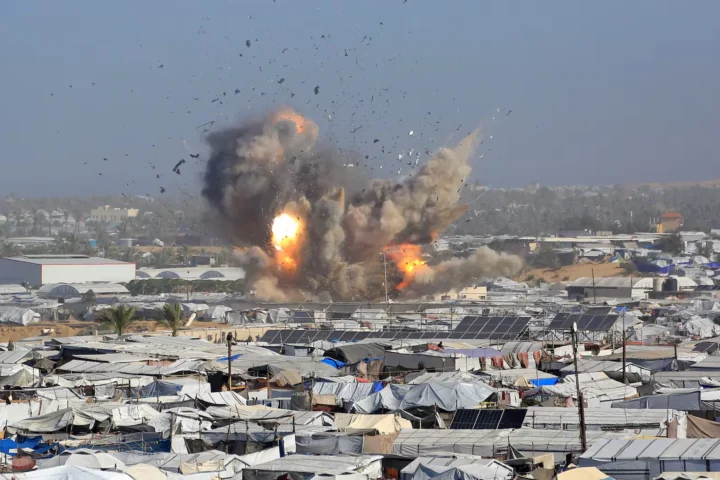Geography has long been a silent architect of human history, sculpting the destinies of nations and empires. In the 21st century, despite the leaps of globalization and technology, the physical contours of our planet continue to exert a profound influence on global power dynamics. Mountains, rivers, deserts, and seas are not mere backdrops to human activity; they are active players in the geopolitical arena, shaping security strategies, economic policies, and international relations.
Geography as a Foundation of Power
Natural barriers have historically provided nations with defensive advantages. The towering Himalayas, for instance, have long acted as a formidable shield for the Indian subcontinent, deterring invasions and influencing cultural and economic exchanges. Similarly, the English Channel has served as a protective moat for the British Isles, contributing to the UK’s historical naval dominance and relative insularity from continental conflicts.
Resource distribution is another critical aspect where geography dictates power. The Middle East’s vast oil reserves have positioned it at the heart of global energy politics, making it a region of strategic interest and, often, contention. In Africa, the Democratic Republic of Congo’s abundant mineral wealth, including cobalt and coltan essential for modern electronics, has been both a boon and a bane, fueling conflicts and attracting international attention.

Coastal access has historically conferred economic and strategic advantages. Nations like the United Kingdom and Japan have leveraged their extensive coastlines to become maritime powers, facilitating trade, exploration, and cultural exchange. In contrast, landlocked countries often face challenges in accessing global markets, necessitating strategic alliances and infrastructural investments to overcome their geographic constraints.
Case Studies of Geography’s Influence
Russia’s expansive flatlands and lack of natural defensive barriers have historically made it vulnerable to invasions, from Napoleon to Hitler. This has ingrained a strategic imperative to secure buffer zones, influencing its actions in Eastern Europe and, notably, its annexation of Crimea and involvement in Ukraine. The desire for warm-water ports and strategic depth continues to shape Russia’s foreign policy.
China’s Belt and Road Initiative (BRI) is a contemporary example of geography-driven strategy. By investing in infrastructure projects across Asia, Africa, and Europe, China aims to revive ancient trade routes, ensuring access to markets and resources while expanding its geopolitical influence. The BRI underscores how geographic considerations remain central to economic expansion and diplomatic outreach.
The Sahel region in Africa, a semi-arid belt stretching across the continent, exemplifies how challenging geography can perpetuate economic hardships and conflict. The harsh climate and limited arable land have contributed to food insecurity, migration, and the rise of extremist groups, necessitating international attention and intervention.
Geopolitical Rivalries Shaped by Geography
The U.S.-China competition in the Indo-Pacific region highlights the strategic importance of maritime geography. The formation of alliances like the Quad, comprising the U.S., India, Japan, and Australia, aims to counterbalance China’s growing naval presence and assertiveness in critical waterways. Control over sea lanes, rich in resources and vital for trade, remains a contentious issue influenced by geographic realities.
Space has emerged as the new frontier where geography extends beyond Earth. Nations like the U.S., China, and Russia are investing heavily in space exploration and satellite technology, recognizing that dominance in near-Earth orbit can confer significant strategic and communication advantages. The geography of space, with its orbital paths and positions, is becoming a new arena for geopolitical competition.
Geography’s Role in Modern Challenges
Climate change is reshaping geographic realities, with rising sea levels threatening coastal nations and island states. Countries like Bangladesh face existential challenges, prompting shifts in political priorities and necessitating international cooperation to address displacement and environmental sustainability.
Urbanization, driven by geographic factors such as resource availability and trade opportunities, presents new political challenges. Megacities like Lagos and Jakarta grapple with infrastructure demands, resource allocation, and socio-economic disparities, all influenced by their geographic settings.
Technological Advances vs. Geographic Constraints
While technology has mitigated some geographic limitations, it cannot entirely negate them. The Panama Canal, despite advancements in transportation technology, remains a critical chokepoint for global maritime trade, underscoring the enduring significance of geographic features. Similarly, undersea internet cables, vital for global communication, are laid along specific geographic routes, making them susceptible to strategic vulnerabilities.
The Multipolar World Order
Emerging powers like India, Brazil, and South Africa are leveraging their geographic positions to assert influence in regional and global arenas. India’s location at the crossroads of major sea routes in the Indian Ocean enhances its strategic importance, while Brazil’s vast natural resources bolster its economic potential. These geographic advantages contribute to a shifting multipolar world order.
Regional complexities, such as the Israeli-Palestinian conflict, are deeply rooted in geographic disputes over land and resources. The contours of territories, access to water sources, and the strategic value of locations continue to fuel tensions, demonstrating how geography underpins many enduring conflicts.
Geography remains a cornerstone of global power, its influence undiminished by technological progress or globalization. Mountains, rivers, resources, and strategic locations continue to shape the security, economy, and diplomacy of nations. Understanding geography’s enduring role is essential for navigating contemporary geopolitical challenges and fostering sustainable international relations. As we advance further into the 21st century, acknowledging and respecting the power of geography will be crucial in shaping a stable and prosperous world order.











